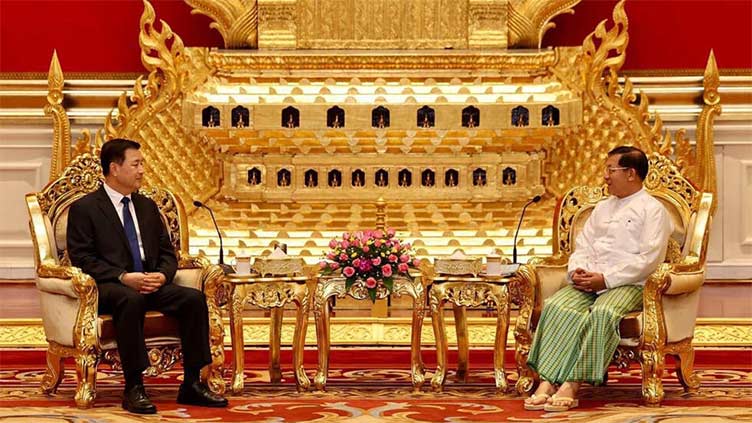Myanmar military will hit back at ethnic armed groups' offensive: junta chief

World
Analysts say fighting in Shan state is the biggest challenge to junta since it seized power in 2021
YANGON (Myanmar) (AFP) – Myanmar's junta chief said the military will strike back at ethnic armed groups waging an offensive in the north of the country, seizing towns and blocking trade routes to China, state media reported on Friday.
Fighting has raged for a week across a wide swathe of Shan state in what analysts say is the biggest military challenge to the junta since it seized power in 2021.
The Myanmar National Democratic Alliance Army (MNDAA), the Ta'ang National Liberation Army (TNLA) and the Arakan Army (AA) said on Thursday they had captured dozens of outposts and four towns and blocked vital trade routes to China.
"The government will launch counter-attacks" against the armed groups, Min Aung Hlaing said in a speech to members of the State Administration Council, as the junta calls itself.
MNDAA and TNLA fighters had "attacked local security camps and departmental offices in the Kokang region" bordering China, he said, according to the Global New Light of Myanmar newspaper.
He also accused the Kachin Independence Army (KIA) -- an ethnic armed group in neighbouring Kachin state -- of attacking "transport facilities" and military bases, and warned the military would retaliate.
On Wednesday a junta spokesman said the military had lost control of Chinshwehaw town, a major trade hub on the border with China's Yunnan province.
China called on Thursday for an "immediate" ceasefire in Shan state -- home to a planned billion-dollar rail link in its Belt and Road infrastructure project.
Myanmar's borderlands are home to more than a dozen ethnic armed groups, some of which have fought the military for decades over autonomy and control of lucrative resources.
Some have trained and equipped newer "People's Defence Forces" that have sprung up since the 2021 coup and the military's bloody crackdown on dissent.
The AA, MNDAA and TNLA say the military has suffered dozens killed, wounded and captured since Friday.
The remoteness of the rugged, jungle-clad region – home to pipelines that supply oil and gas to China – and patchy communications make it difficult to verify casualty numbers in the fighting, which the United Nations fears has displaced thousands.


